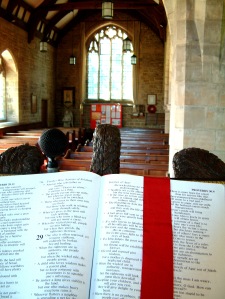 Although it was over 40 years ago, I remember well my seminary homiletics class. “Homiletics” comes from a Greek term signifying conversation or discourse. In the church, homiletics refers to the art of preaching, which is essentially the communication of truths, thoughts, ideas and concepts based on a specific portion of Holy Scripture delivered to a listening audience.
Although it was over 40 years ago, I remember well my seminary homiletics class. “Homiletics” comes from a Greek term signifying conversation or discourse. In the church, homiletics refers to the art of preaching, which is essentially the communication of truths, thoughts, ideas and concepts based on a specific portion of Holy Scripture delivered to a listening audience.
Properly done, the homiletical process includes clear and convincing proclamation of God’s word and its compelling application in the life of the listener. A homiletician does well to answer the questions most likely in the minds of the hearers: “What’s your point?” “So what?” “How does what you’re saying have an impact on my life?”
My now sainted homiletics professor was a stern but evangelical task master and also an excellent preacher. Young seminarians (and other students as well) often view their professors with a unique combination of admiration for their accumulated experiential knowledge and a dab of disdain for their somewhat overly academic and thus not nearly practical enough perspectives on the subject they teach. I had some of both, but more of the former than of the latter.
Over the 44 years of my ministry I’ve observed some subtle and also some radical changes in homiletical style in my own preaching and in that of other homileticians. I was taught that every sermon should have three clearly delineated points drawn directly from the scriptural text. Any deviation from that recipe was unacceptable. I no longer insist on the first part of that formula.
Today’s sermons, including my own, are more likely to have a narrative focus, which is relational and heavily emotional (often but not always in the good sense of that term) rather than a cognitive focus, which is mostly rational and academic (also in the good sense of that term). While these two emphases need not be mutually exclusive, skillfully merging both approaches is a delicate but rewarding task.
The efficacy of preaching is directly proportionate to the homiletician’s success, by the grace of God, in accomplishing the homiletical task. An effective sermon is one that touches not only the head but also the heart. The preacher must convict the listener of human frailty and failure and also convince the listener of God’s complete forgiveness in Christ, transitioning that conviction and convincing into calling and commitment.
Why does one church shrivel on the vine while another church grows like wildfire? While there may be many reasons, including demographic, geographic, social and economic, I submit that the real reason mostly revolves around the difference in the efficacy and effectiveness of its preaching.
Ralph Waldo Emerson (1803-1882) is credited with saying, “If a man can write a better book, preach a better sermon, or build a better mousetrap, though he build his house in the woods, the world will make a beaten path to his doorstep!” I believe that’s true still today!
